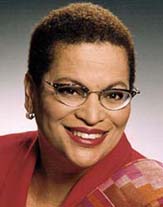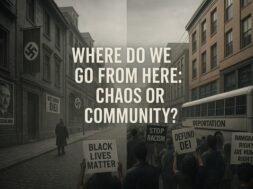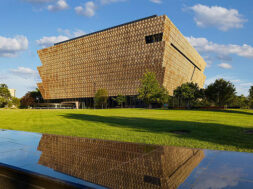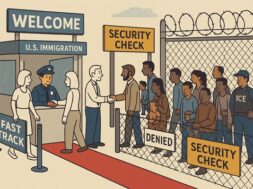
Did So-called Black Friday Trump Thanksgiving? – by Julianne Malveaux
 First of all, I never understood why they called it “Black” Friday. I never saw any red, black and green adorning the shopping mall sales. Yes, I know that theoretically this is the day that puts stores in the black, out of the red they’ve been managing all year. Nearly 40 percent of jewelry sales happen between Thanksgiving and Christmas, and other sales are up in the weeks that end the year. But I’m enough of a nationalist to resent the day after Thanksgiving being called “black” for commercial purposes.
First of all, I never understood why they called it “Black” Friday. I never saw any red, black and green adorning the shopping mall sales. Yes, I know that theoretically this is the day that puts stores in the black, out of the red they’ve been managing all year. Nearly 40 percent of jewelry sales happen between Thanksgiving and Christmas, and other sales are up in the weeks that end the year. But I’m enough of a nationalist to resent the day after Thanksgiving being called “black” for commercial purposes.
Call it what you will, though, it was a rousing success for retailers. Record breaking, according to the National Retail Federation. More than 226 million shoppers spent $52.4 billion during Thanksgiving weekend. (There are 312 million Americans, which means that at least a few of us sat this drama out). At least 50 million of these folks hit the stores before midnight. They spent an average of nearly $400 per person, undaunted by crowds, pepper spray and long lines. When did they find time to give thanks? And whatever happened to the recession?
I am frankly puzzled by the hype of post-Thanksgiving shopping and the way so many people have shrugged off their concerns of economic survival to crowd the stores. At the same time, it underlies the way that consumerism so drives our society, our need for more, more, more of things, things, things. To be sure, it would make no economic sense to put retailers out of business, and we know that consumer spending drives 70 percent of gross domestic product. But there is something sad about the crowds, the energy, and the profligate spending that drives people to spend part of Thanksgiving Day standing in line waiting for a chance to buy stuff, something tragic about some fool pepper spraying folks for a chance at an X-Box (I suppose I show my own ignorance by wondering what an X-Box is).
Retailers are touting their successful weekend – with spending up by more than 6 percent from last year – as a good sign that economic recovery is on the way. I’m not so sure – unemployment rates remain high and there are more than 14 million officially unemployed people, and probably an equal number marginally connected to the labor market. Wages have been stagnant for quite some time, and the Occupy Wall Street movement has only gained momentum because of the enormity of economic misery.
But the Occupy Wall Street movement has attracted curiosity but hardly the interest of 226 million people. I can’t think of ANYTHING that gets 226 million people together. Imagine that as many people cared about the environment, economic justice, or anything else. We don’t even get that many people voting in so-called close elections. pointing to the 99 percent at the bottom.
So how is it that we spend Thursday counting our blessings, surrounded by friends, family, and other loved ones, and thanking the Lord, and then collectively spend Friday swarming the stores. How is it that some of us actually get up from the dinner table and make it to the stores. And how is it that retailers force employees to come to work to sell “stuff” to the rest of us in the name of post-Thanksgiving sales?
According to those who study spending the post-Thanksgiving sales aren’t actually the best ones. Prices next week, according to some experts, are actually going to be better. And the quality of the merchandise that was put out there on sale wasn’t “all that” either. Still, we swarmed the stores.
I realize that I have Grinch-like tendencies when it comes to holidays, but the economist in me is more puzzled than anything else at this holiday behavior (especially the pepper spray wielding fool). I’m also wondering if the energies of 226 million people could ever be harnessed for good.
I surely hope that Black Friday did not trump Thanksgiving, but it surely got a lot more ink than Thanksgiving. Shopping may well be both the great American pastime and our substitute for religion, for industry, and maybe even for morality. No wonder the Chinese are planning to eat our lunch in 20 years or so. We’ll probably buy new place settings for them at a holiday sale!
Dr. Julianne Malveaux is an economist, author and commentator, and the Founder & Thought Leader of Last Word Productions, Inc., a multimedia production company. Currently, Julianne Malveaux is President of Bennett College For Women in Greensboro, North Carolina and author of Surviving and Thriving: 365 Facts in Black Economic History.








